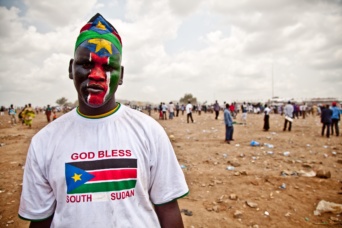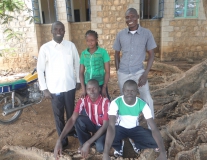- About
- Topics
- Picks
- Audio
- Story
- In-Depth
- Opinion
- News
- Donate
- Signup for our newsletterOur Editors' Best Picks.Send
Read, Debate: Engage.
With the stroke of a pen, millions of citizens across South Sudan have been given new lease of life as the government and rebels are seeking to foster lasting peace through the latest revitalised peace deal. It is an attempt to put to rest a five-year conflict that has claimed tens of thousands of lives while forcing more than four million people to flee from their homes.
Millions of citizens in Sudan, the youngest nation in the world, have never known peace, with previous attempts at truce and reconciliation collapsing and ceasefires being broken by the two warring factions. Even with the Comprehensive Peace Agreement of 2005, which heralded the independence of the country and a renewed hope that South Sudan would finally rise, conflict continued unabated.
Yet the latest development could be a game changer seeing that negotiators have thoroughly examined the grievances and worked to ensure the parties cede ground and meet halfway. But the mistrust is still there as witnessed in the last minute intrigues that had seen rebel chief Riek Machar refuse to sign the deal, insisting his demands had not been met.
The two top most politicians have been here before and their mistrust nearly brought the country to its knees. Players at the negotiation table and the global community should remind them that the impact of their decisions has a domino impact across the Eastern Africa region that has over the recent past seen an unprecedented influx of refugees, more than it can handle.
It has been established that the biggest hurdle in realization of ultimate peace is in implementation. Regional heads of states under the ambit of Intergovernmental Authority on Development, IGAD, the African Union and the community of nations need to pile more pressure and let the two know that there can never be any more bloodletting, because no life in South Sudan should be sacrificed at the altar of egotistic and self-serving politics.
Photo: ENOUGH Project/Flickr

